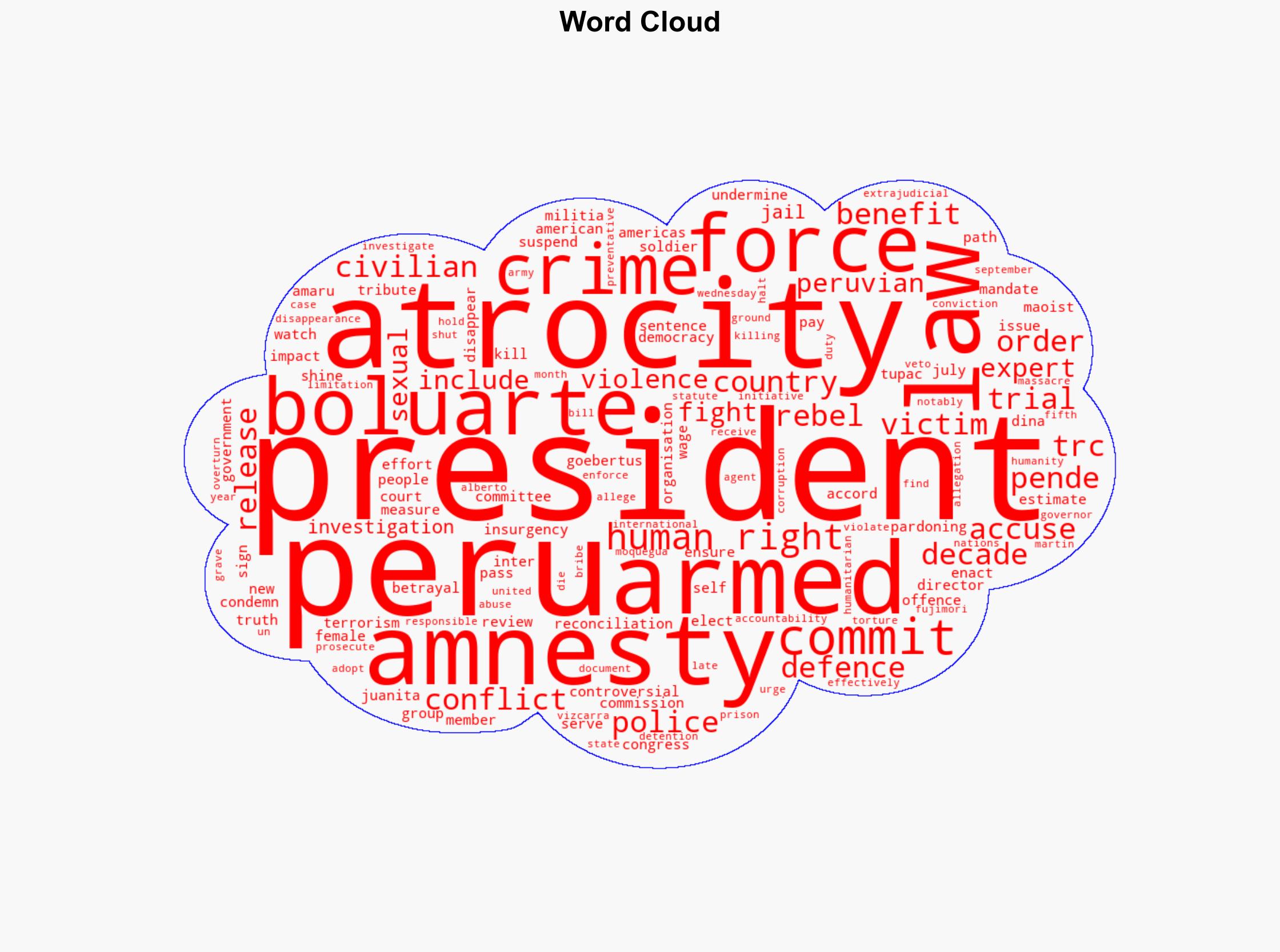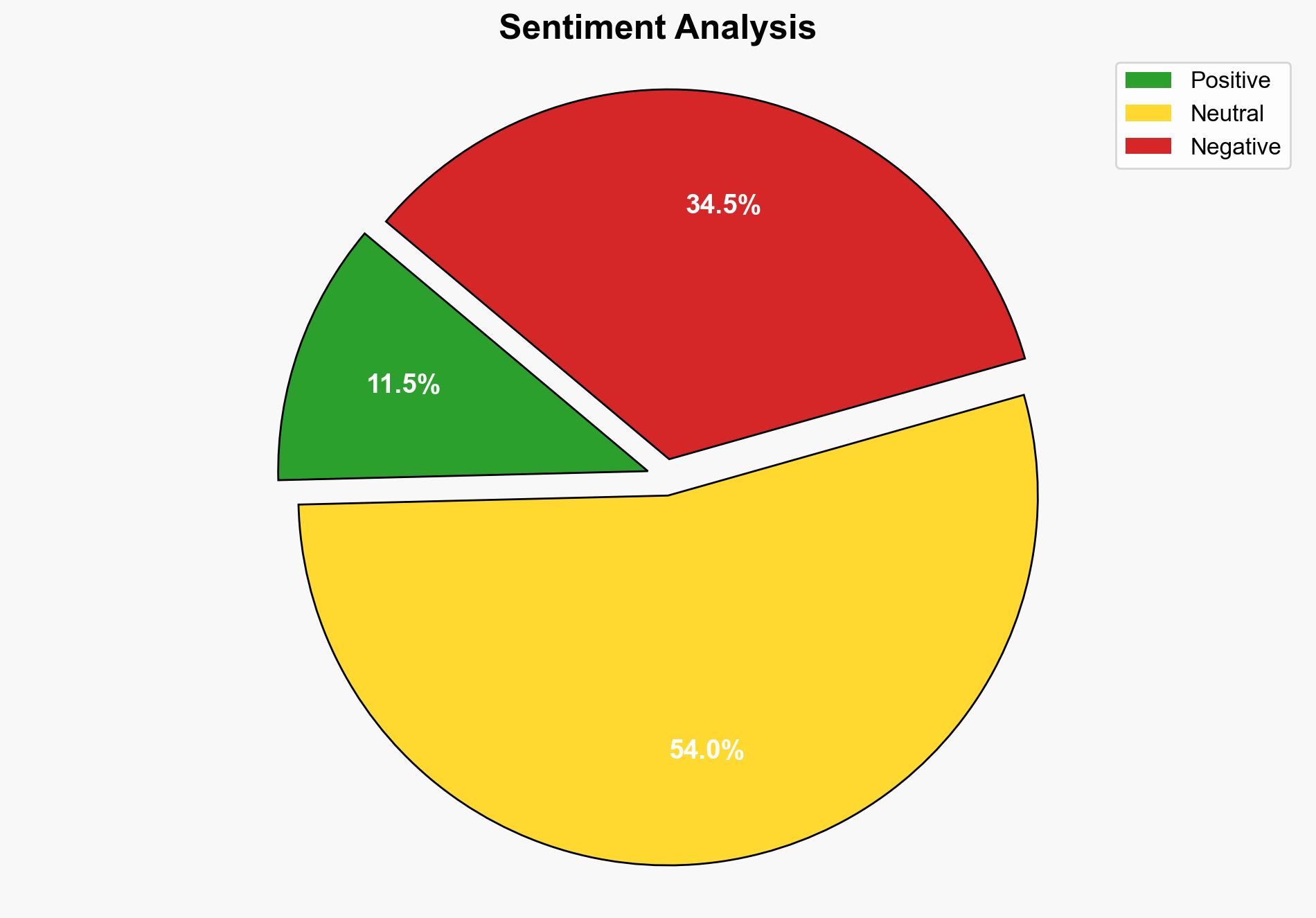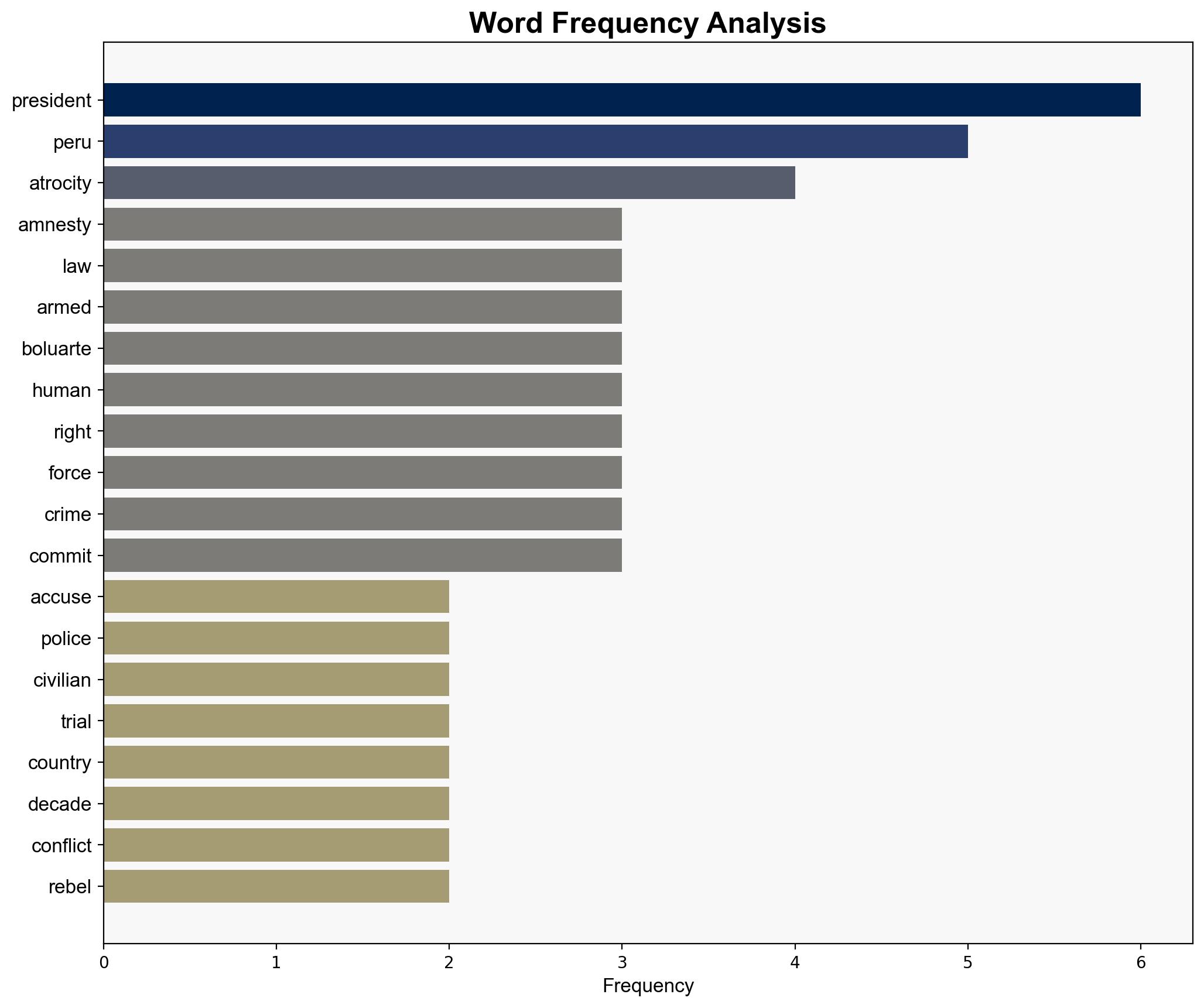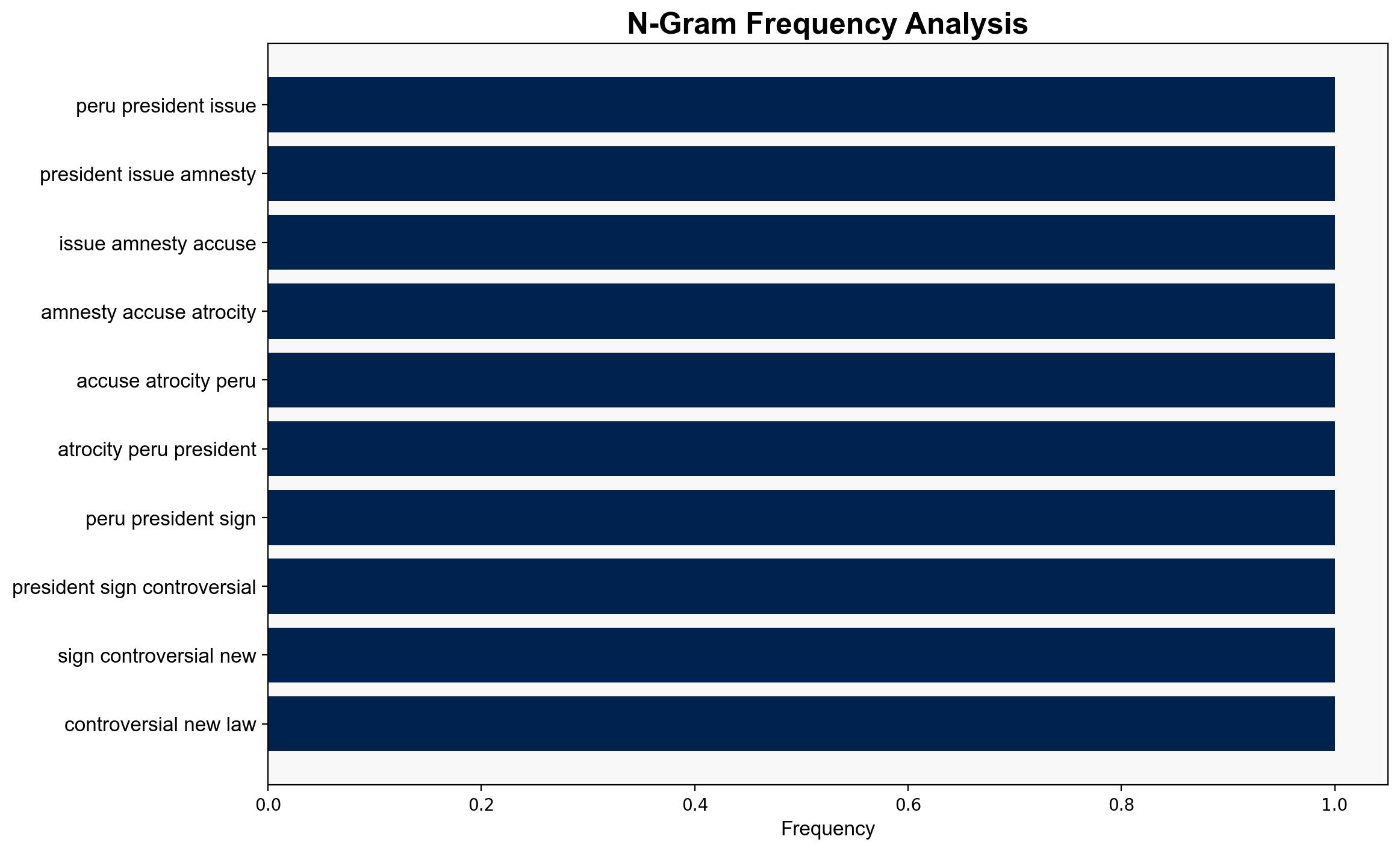Peru president issues amnesty for hundreds accused of atrocities – BBC News
Published on: 2025-08-13
Intelligence Report: Peru president issues amnesty for hundreds accused of atrocities – BBC News
1. BLUF (Bottom Line Up Front)
The strategic judgment suggests that the amnesty issued by Peru’s president is likely a politically motivated decision to consolidate power and appease military forces. This is supported by historical patterns of political maneuvering in Peru. The confidence level in this hypothesis is moderate due to the lack of transparency and potential biases in the available data. It is recommended to monitor the situation closely for any signs of civil unrest or international backlash, and to engage in diplomatic dialogues to uphold human rights standards.
2. Competing Hypotheses
1. **Hypothesis A**: The amnesty is primarily a political strategy to gain favor with the military and secure political stability.
– **Supporting Evidence**: Historical precedence of political leaders in Peru leveraging military support for stability; the timing of the amnesty coinciding with political challenges.
2. **Hypothesis B**: The amnesty is a genuine attempt to reconcile and move forward from past conflicts.
– **Supporting Evidence**: The measure was passed by Congress and aligns with some national reconciliation narratives; potential economic benefits from reducing the burden of ongoing trials.
Using ACH 2.0, Hypothesis A is better supported due to the alignment with previous political strategies in Peru and the immediate political benefits for the current administration.
3. Key Assumptions and Red Flags
– **Assumptions**: It is assumed that the military’s support is crucial for political stability in Peru. The belief that reconciliation can be achieved through amnesty is also assumed.
– **Red Flags**: Lack of transparency in the decision-making process; potential underreporting of dissent within the military or public.
– **Blind Spots**: The potential long-term impact on Peru’s international relations and human rights reputation is not fully explored.
4. Implications and Strategic Risks
– **Political Risks**: Potential for increased civil unrest and protests from victims’ families and human rights organizations.
– **Geopolitical Risks**: Strained relations with international human rights bodies and potential sanctions or diplomatic pressure.
– **Economic Risks**: Possible negative impact on foreign investment due to perceived instability and human rights concerns.
– **Psychological Risks**: Erosion of public trust in government institutions and increased societal polarization.
5. Recommendations and Outlook
- Engage in diplomatic efforts to address international concerns and uphold human rights commitments.
- Monitor domestic reactions closely to anticipate and mitigate potential unrest.
- Scenario Projections:
- **Best Case**: The amnesty leads to political stability and economic growth without significant backlash.
- **Worst Case**: Widespread protests and international sanctions destabilize the government.
- **Most Likely**: Moderate unrest with ongoing international criticism, but no immediate destabilization.
6. Key Individuals and Entities
– Dina Boluarte
– Juanita Goebertus
– Alberto Fujimori
7. Thematic Tags
national security threats, human rights, political strategy, regional focus





